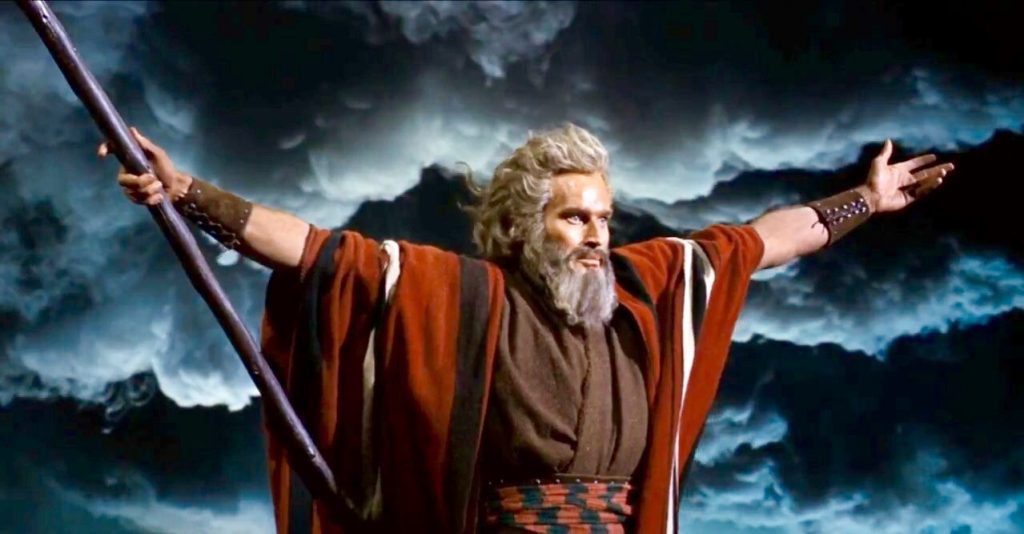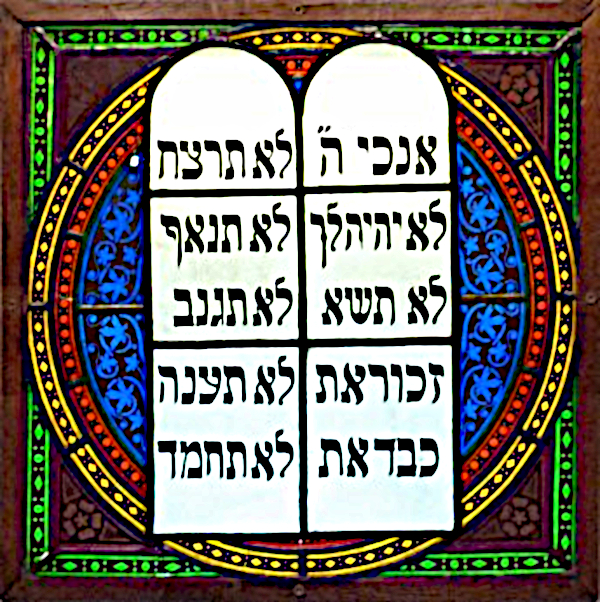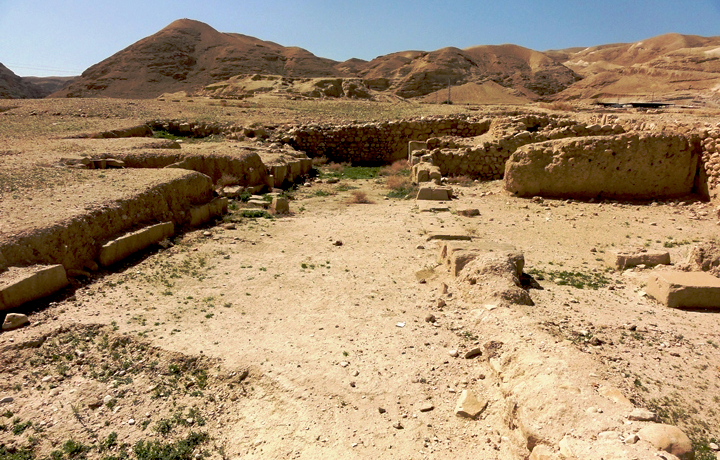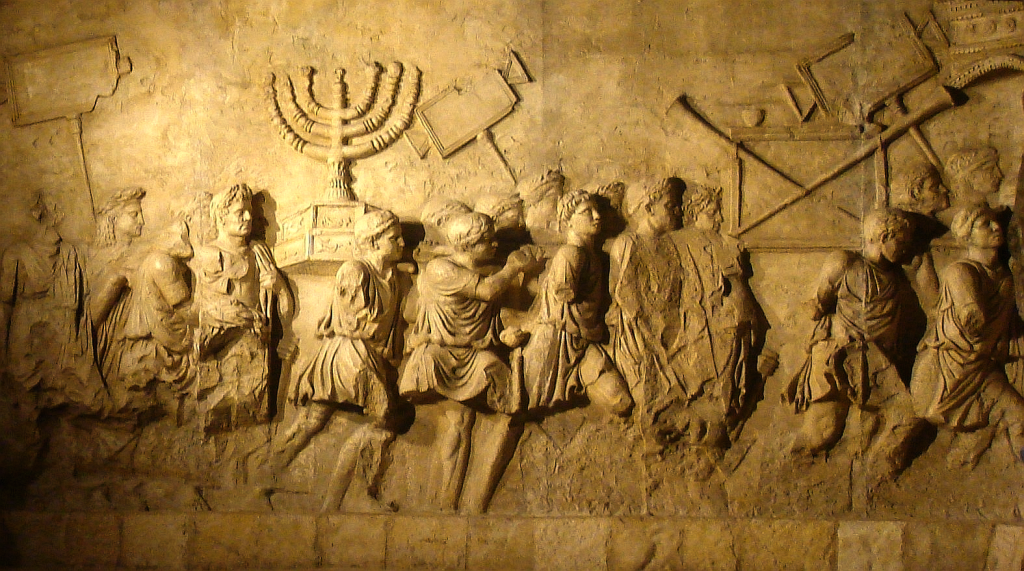
(3-4 Minute Read)
Deuteronomy 1:1-3:21
The Book of Devarim, or Deuteronomy, begins with the Torah portion of the same name. In Deuteronomy, near the end of his life Moses addressed the early Jewish nation on the other side of the Jordan River. Our great teacher recounted and summarized much of the previous three books of the Torah, providing commentary and additional details in the process.
The parasha, or Torah portion, of Devarim commences with Moses describing the creation of the leadership hierarchy of the congregation of Israel, utilizing “captains of tens, fifties, hundreds, and thousands.” The incident of the twelve spies is recalled, in which ten spies gave a bad report of the land of Israel and induced a rebellion by the Jewish people against both the Holy One, Blessed Be He, as well as Moses and Aaron. This revolt led to forty years of wandering in the wilderness, and only Joshua and Caleb would be privileged to enter the land afterwards. The Israelites attempted to enter the land on their own despite the Almighty’s decree, and they met with immediate disaster. As the Jewish people continued their journeys, the Most High instructed them to avoid the lands of Edom, Moab, and Ammon, and to compensate the inhabitants as necessary for any food or water consumed. Refusing to grant the Israelites passage, King Sihon of Heshbon and King Og of Bashan both waged war against the Jewish people, but were soundly defeated. The Israelite nation acquired the land that encompasses the Golan Heights and beyond and made it part of their permanent territory, assigning these areas to the tribes of Reuben, Gad, and part of Manasseh. Moses reiterated that the warriors of these tribes were still required to join the other tribal armies in their conquest of the rest of the land of Israel.

Most of Devarim is a recap of several key events previously described in B’Midbar, or the Book of Numbers. One of the most important incidents in this narrative, especially as we commence the Nine Days of Av, or the preliminary nine days leading to Tisha B’Av, is the evil report of the ten spies and the ensuing revolt by the Jewish people. According to the Mishna (Taanit 4:6) based on the timeline of Torah events, the twelve spies returned and gave their report on the ninth day of the month of Av, or Tisha B’Av. The Zohar indicates that the motives of the ten spies were related to an attempt to tyrannically oppress their fellow Jews and maintain their own power and positions of leadership. The result was a revolt by the Israelites and ensuing catastrophic punishment decreed by the Most High. Later, both the first and second Beit HaMikdash, or Temple, were destroyed on or around Tisha B’Av, as well as numerous other calamities.
There is an interesting phenomenon we see in the Torah and Tanakh (Hebrew Bible), especially relating to Tisha B’Av. Our chachamim, or rabbinical sages of blessed memory, have indicated that the first Beit HaMikdash, or Temple, was destroyed by Nebuchadnezzar and the Babylonians primarily due to the idolatry of the Jewish people. In contrast, the second Beit HaMikdash was razed by Titus and the Romans due to the sinat chinam, or baseless and free-flowing hatred, of the Jewish people expressed towards one another. This brings us to an interesting observation: the consequences for sinat chinam, or oppressive, baseless hatred for one another far exceed even heinous idolatry. The exile resulting from idolatry lasted about seventy years, while the exile induced by sinat chinam, or baseless hatred, has reached a duration of nearly two thousand years (and counting). Similarly, in the Torah we read that egregious idolatry such as the sin of the golden calf as well as the seduction to idol worship by the women of Moab and Midian had severe consequences for the participants. However, neither of these or similar events led to the wandering and defacto exile of the entire Jewish people. It was the sinat chinam, or baseless, oppressive hatred, of the ten spies and the entire congregation of the Israelites that resulted in the forty year decree of exile-like wandering of the Jewish people that ended with the death of an entire generation.

Conceptually, the mitzvot, or commandments, of the Torah can be divided into two categories: commandments between the Almighty and humans, and commandments between humans and other humans. Even the Aseret HaDibrot, or Ten Commandments, first outline commandments that tell us how to properly connect with the Eternal One followed by commandments dealing with inter-human relationships. While some have divided the two categories into four and six commandments respectively, Judaism generally categorizes the Ten Commandments as five and five. The chachamim (rabbinical sages) postulate that the fifth commandment of honoring our parents is actually relatable to the very essence of our relationship with the Most High. Just as we are to respect our parents as our human creators, even more so we must respect our Divine and Ultimate Creator. As is obvious, the five commandments that follow, ranging from “Do not murder” to “Do not covet,” are inherently related to human interactions.
As Moses began his narrative in Devarim, he proceeded to outline both mitzvot, or commandments, and especially events that related to the relationship of the Jewish people both to the Eternal One as well as to each other. And while both are pertinent, the aspects of the Torah relating to interpersonal conduct are especially relevant in the modern era. Baruch Hashem, the Jewish people as a collective whole have not embraced idolatry in any form since the days of the Maccabees in the second century, BCE. However, even the Maccabees and especially their descendants, the Hasmoneans, were known for succumbing to oppressive sinat chinam and deadly internal fighting. In many ways, the division of the Hasmoneans paved the way for the Roman dominance of the land of Israel that resulted in the destruction of the Beit HaMikdash and the exile of the Jewish people for thousands of years.

As we review the Torah portion of Devarim and commence the Nine Days of Av, we are reminded of the importance of observing Torah regulations not only as they relate to religious ritual and our methodology for connecting with the Almighty, but also as they describe how we treat and interact with one another. As important as it is, for instance, to observe Shabbat and keep kosher dietary laws, it is equally important to treat the other members of the Jewish community (and all other persons, for that matter) with love and respect. The Holy One, Blessed Be He, is just as concerned about how we connect with the other people we encounter as how we practice our traditions and how we maintain our relationship with Him. Indeed, the Master of the Universe might even be more gracious to those who sin against Him than those who sin against their fellow human beings.
May the Holy One, Blessed Be He, grant each and every one of us the wisdom and the strength to understand and observe all the commandments of the Torah outlined in the book of Devarim (and otherwise) as they define our relationships both with the Almighty and other humans. May we all understand the importance of removing all traces of sinat chinam, or baseless hatred, and other forms of malicious mistreatment from our lives and from our interactions with loved ones, friends, and also strangers. And may the Eternal One provide us with blessings accordingly, and speedily end all aspects of our exile.


